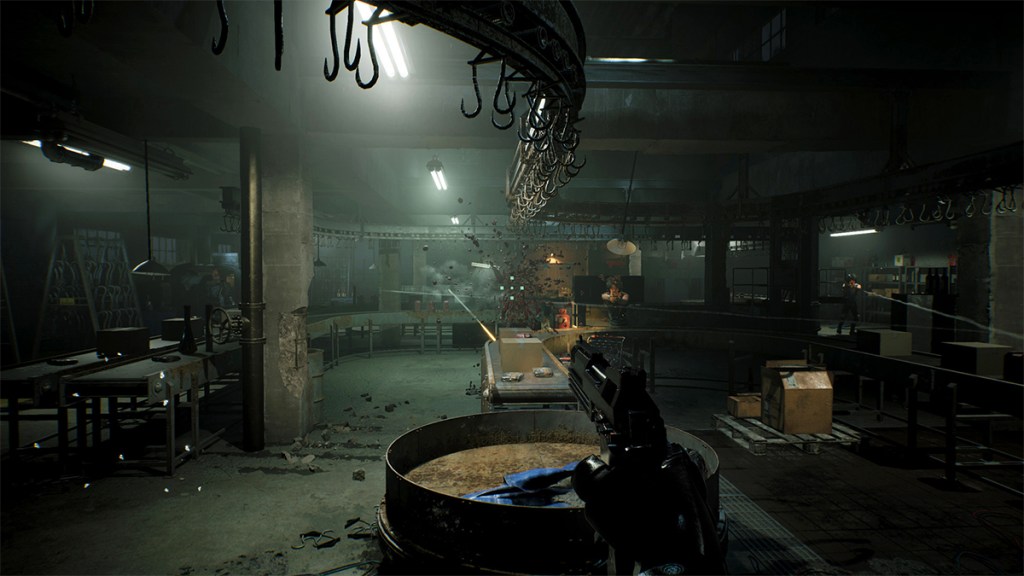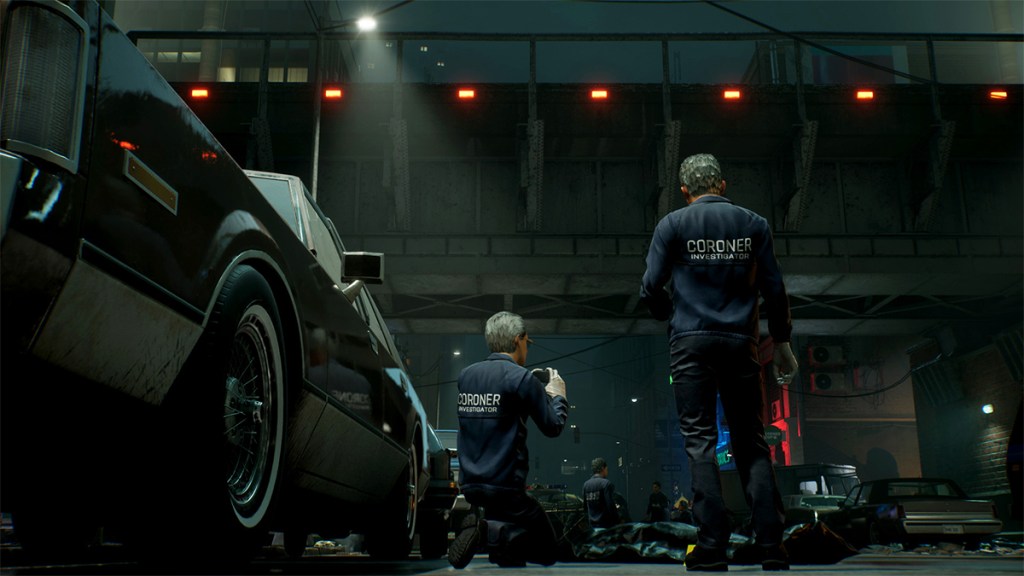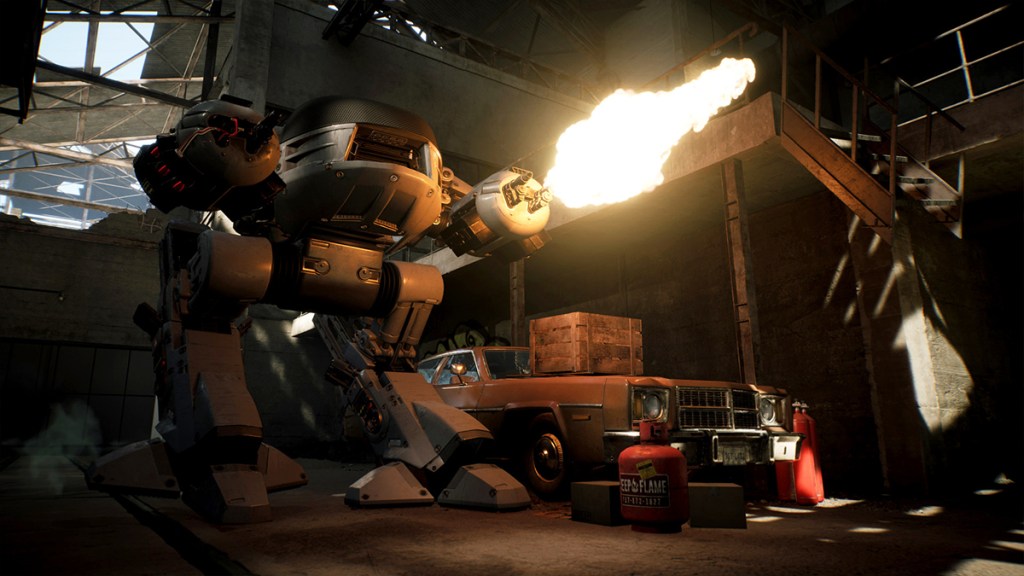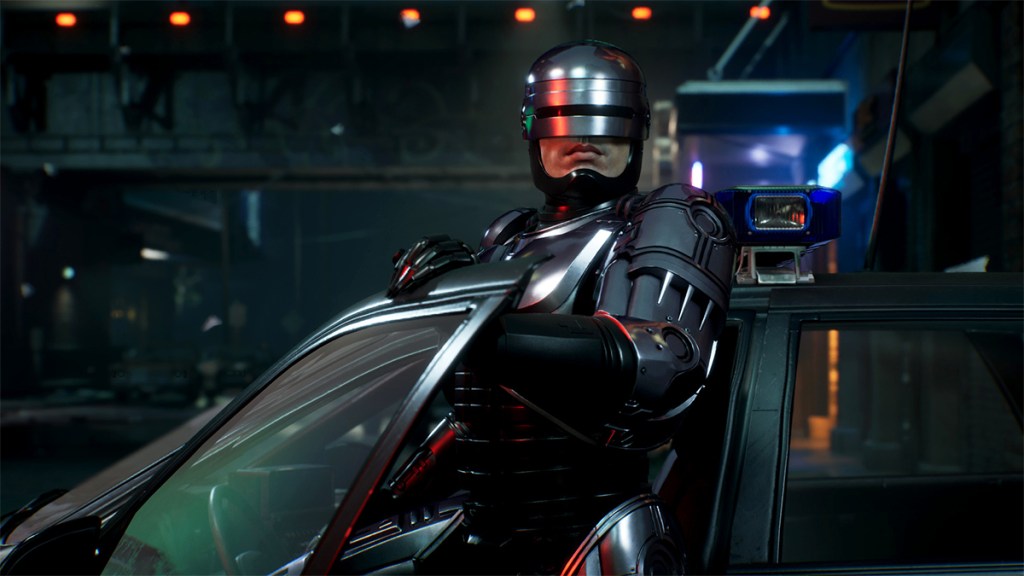RoboCop: Rogue City is Teyon’s third crack at making a licensed shooter, and this is the most promising one yet. But it’s not just a shooter, and game director Piotr Latocha recently sat down with Evolve Media’s lead gaming editor Michael Leri to talk about the fantasy Teyon wanted to fulfill, how players can get different endings, and nailing that satirical tone from the films.

Michael Leri: RoboCop: Rogue City is a shooter, but it’s not just about shooting. Can you talk about the other aspects of RoboCop, the character, and how you realize those other parts in the game?
Piotr Latocha: There’s a lot of different things to do. And I am most proud of how the game is much more than just shooting. We have some crimes to solve, different small side quests, some random encounters, and dialogue options. It was pretty important to us to have something more than just shooting.
We wanted players to feel like they stepped into the shoes of RoboCop and just be in the city that was represented in the movies. If you see RoboCop, it wasn’t only about shooting. This was important. It was very brutal, of course, and I think we’ve covered a lot of that, but we wanted to have some more types of things to do and also a lot of humor, as well.

There are multiple endings. How do players trigger different types of endings? Like what mechanics even set players on different paths
The endings play out kind of like the Fallout games, so you have different dialogue interactions and those can end in different ways. And one of those main topics is how your character responds to dialogue through serving the public trust and upholding the law. It’s a trade-off. When you serve the public trust, it’s easier for you to get the better ending for RoboCop. But if you uphold the law, you’re more of the “on duty” guy, so you’ll level up faster, but you will get less public trust.
For example, if you issue more tickets instead of warnings, you get more crime evidence that affects your evaluation and you get a higher score and you get more XP from the evaluation. That’s the trade-off, but you can still roleplay and get the “good” ending.

Can you talk a little bit about the morality system and how it made its way into the game?
We thought it was interesting if you always had to [think about what you had to do]. RoboCop always has three directives that he has to follow, so we felt it was interesting to give the players that choice. And we, of course, like in Terminator Resistance, like to give a lot of those choices to the players so they can play how they want.
Another thing about RoboCop is that he moves a very certain way, which is very plodding. So can you talk about having to build a shooter around that?
It was really important for us to make the players feel like they were in the shoes of RoboCop. It was actually a very difficult design thing to find the sweet spot between having dynamic, fast-moving action and also making players feel like an indestructible tank that is very slow and heavy. We were definitely looking for a sweet spot and crossed out the stealth. We couldn’t have RoboCop sneaking around.
We added a lot of things that RoboCop actually does like grabbing enemies and throwing them at each other, picking up and throwing heavy things, breaching the walls, and such. So you are a bit slower, but you can do other cool things that a heavy tank can do. But also once you upgrade your character, we added some things that were not in the films, like the dash, so we had some opportunities to get that more than dynamic movement.

How do you make sure you keep RoboCop’s satirical core in this video game?
We watched the movies multiple times. One of the goals was to have that atmosphere from the first movie, so the game is very dense but also satirical like that film. That was one of the key elements. We have a lot of commercials that are quite silly. So we tried to get into that mood from that 1987 movie and have that style in the game.

Since Teyon has done a few licensed titles, what do you think makes a good licensed game?
First of all, it’s the atmosphere and the mood, then comes the fantasy. We wanted to get into the heads of our players and think why they would like to play the game. They want to feel like RoboCop. What’s interesting about the character? He’s a policeman. That’s why we add the small silly things like issuing tickets. But he’s a policeman, so that’s part of the fantasy that the team wanted to fulfill.
And of course, there are small details. Our thinking is to make the player feel like they are in the movie that they love or like. And this shows in the environments, for example, like the lighting, the color palette, the levels, and the police station, which is very close to how it is presented in the movie. The arcade is also just like it was in RoboCop 2. There are tons of small details that we put from the film to the game, so the players can feel like they are in the film. Those are small details that a casual player won’t notice, but the ultra fans will find those details and think they are cool.







